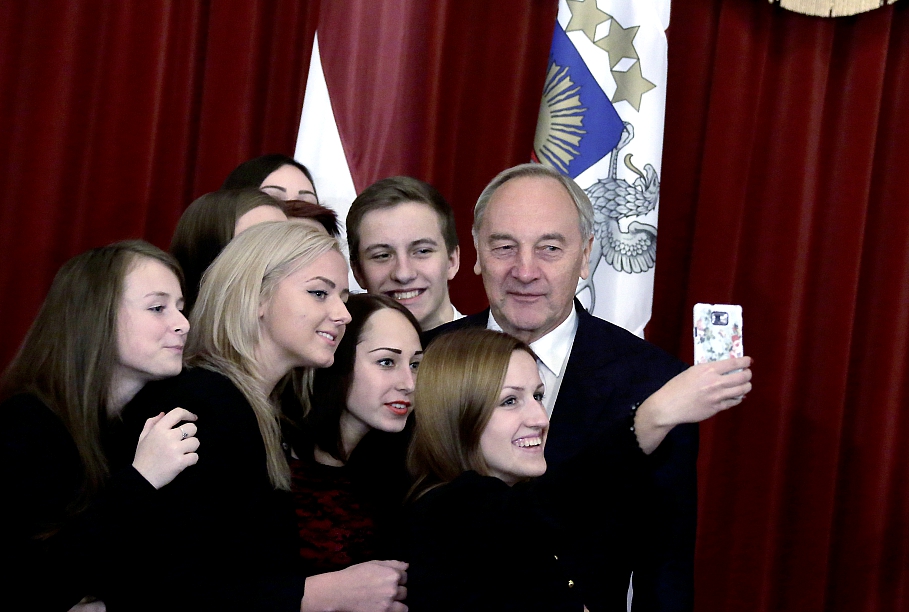The research was conducted by Māra Laizāne, who allowed the 89 surveyed students from nine minority language schools to choose their own questions and interview each other and mark their responses rather than applying a more conventional standardized questionnaire or focus group methodology.
As for the findings, Laizāne said that “first of all, minority group students feel like they belong in Latvia. Those who plan on leaving for a time mostly say they would return,” she added.
She also found that the sense of belonging to Latvia wasn’t linked to citizenship, which minority group youth consider simply a functional status value. This means that they feel no need to change their status if it already allows them to travel and enjoy other privileges that didn’t exist before.
Ethnic identity is no obstacle to feeling like one belongs in Latvia. The nation feels its unity most at times of celebration, like Midsummer’s Eve, or tragedy, like during the Zolitude disaster, found the survey.
“So the schooling of minority group children and their use of the Russian language really have no connection with Russia itself. Like I said, the youth feel like they belong to Latvia and Russia is another country with which they do not identify,” Laizāne said.
The five-month survey was conducted with support from the social organization Ascendum in order to probe social stereotypes affecting the sense of identity of minority groups in Latvia. The survey also showed that young people are quite critical of information sources and use several of them at a time to navigate around propaganda.
The sense of a state split into two language communities is also a stereotype and has more of an ideological than practical basis, says Laizāne. Though the survey found that youth can easily characterize the different social groups of Latvians and Russian-speakers, the actual content and consequence of the differences between them are disappearing.
A convincing majority of minority children are currently attending Russian schools (instruction language: Russian). Interesting to note that significant numbers do not consider themselves "Russian", and believe "Russians" are "citizens of Russia." Most often the youngsters identify themselves as a "Latvia's Russian-speaker." Indeed, they told researchers that they find that they are "different from Russia's Russians."
The survey also notes that those children in Latvia who consider and call themselves Russian, do so due to "family tradition and the historical context."
Russian youth aren't troubled by various historical or political issues, like many of their elders. In fact many of the schoolchildren are quite poorly informed about neighboring Russia, points out Latvia's Russian Culture Society head Jeļena Matjakubova.
"A large part doesn't know what Russia means, they've never been there, it's not that easy to visit right now. Some have relatives, so then they know at least something - some have a grandmother, cousins, perhaps, who live there. The Russian part of our society, I'd say, is completely different than the Russians in Russia," she claimed.




























